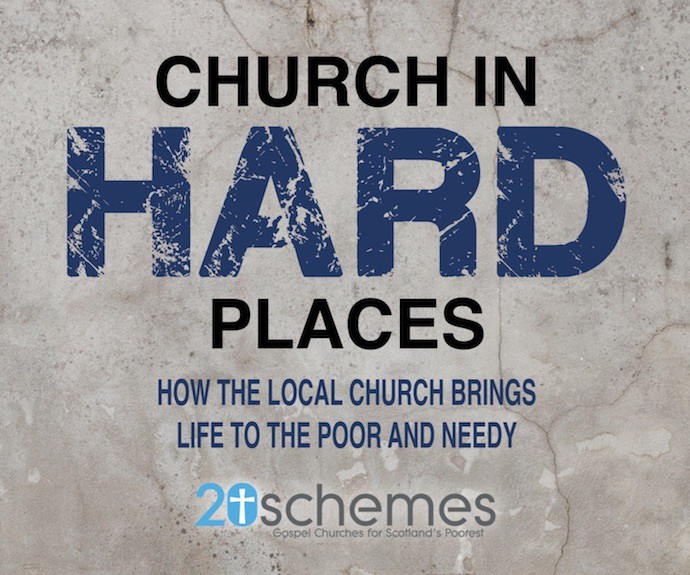This sponsored post was provided by Matthew Spandler-Davison on behalf of Church in Hard Places.
What is poverty? On the face of it this is a simple enough question. When we think of the poor we might immediately think of the troubled neighborhoods in our own city, downtrodden communities, areas often devastated by drugs, social strife, and urban decay. Many would say poverty is the lack of something necessary. The lack of material wealth, good housing, a decent job, access to basic services. However, if you grew up in a poor community you might very well have a different response to that question.
I grew up in the 1980s on a poor housing estate in the south east of England. My mother was a single parent and we lived with my grandparent’s in their four room home. The coal fire kept the house warm, there was always food on the table, and my Mum worked hard filing medical records at the local hospital. Poverty to us was less about a lack of stuff, rather my experience of poverty was more about feeling a sense of alienation and shame. It seemed that no matter how hard we tried we struggled to get ahead – so why bother. What hurt me more than the lack of food on the table was watching a close friend at school spiral out of control because of his drug habit. It was being afraid on my own street because I was daily intimidated by my abuser. It was being a 9 year old kid growing up feeling lost, lonely and afraid.
Jesus came to seek and to save the lost, paying particular attention to the downtrodden and the poor. So how should the church be engaging the poor? Jesus has given us a mandate and it is clear – go and make disciples. That has to be our response to poverty because that has to be our response to every social challenge we face in society. Make disciples!
The reality is though that while many churches start well meaning mercy ministries, such as food banks and clothing drives, the result is rarely the making of new disciples. Indeed, many mercy ministries actually perpetuate the sense of alienation and shame that the poor experience. While on the other hand there are churches and church planters serving in poor communities who feel discouraged, isolated and lack resources for their work.
Here is the reality, and it has been the reality for over 2000 years now, the poor need healthy, gospel centered churches. Our greatest need is Christ. Our greatest suffering is separation from God. Yes, by all means the church needs to be in poor communities feeding the hungry, housing the homeless, and helping the addict. But if that is all we are doing then we are failing miserably and totally missing the point. If we want to be merciful to the poor then make Jesus known. We must be confident in the gospel and committed to building gospel centered churches.
The Church in Hard Places Global Network
Churches in poor communities often share common struggles. A lack of strong and well trained leadership, a lack of resources to fund workers in these communities, a sense of Isolation from the broader evangelical church. Ministry among the poor is more labor intensive and requires different resources than ministry in other contexts. Such ministries are often serving communities unable to viably sustain the work. Training and reproducing indigenous leaders within a poor community requires funding and support from those outside that community.
This is why we have launched the Church in Hard Places Network. We desire to mobilize pastors to equip their churches to make a real difference in socially and economically disadvantaged communities.
This is a global network because no matter where you are in the world, the world’s poor communities share common characteristics:
- A densely populated community
- Matriarchal leadership and the absence or inactivity of fathers
- A socially, economically and geographically isolated population
- Higher levels of mental health issues, addiction, abuse, and illiteracy
- Ethnically and socially diverse groups coexisting in close proximity but at odds with each other
There are many faithful churches and church planters doing incredibly effective and fruitful work in some of the worlds poorest communities. There is much to be learned from each other and our prayer is that we can equip and strengthen one another as we seek to partner together to produce relevant resources, train indigenous leaders, and work together to build healthy churches.
If you are serving in a socially or economically disadvantaged community would you consider being part of this network? Find out more about our vision for the Church in Hard Places Network at www.churchinhardplaces.com.












